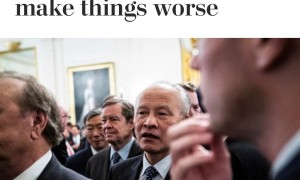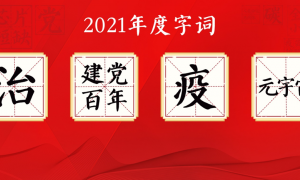导读:生孩子容易养孩子难。奇缺的产位、高昂的抚养费用、高价的教育资源、忙碌工作的父母等,都让大多数中国夫妻对二胎望而却步。

Though often seen as one of China’s most draconian laws, the one-child policy, introduced at the end of the 1970s and abandoned at the beginning of 2016, achieved what it set out to do - rein in growth of the country’s population.
尽管20世纪70年代开始启用、2016年初被废弃的独生子女政策一直被视作中国最苛刻的法律之一,但它达到了预期的效果——控制中国人口增长。
More than three decades on, as economic prosperity and nature have taken their course, the country faces a new demographic issue: it looks set to become old before it becomes rich.
三十多年来,随着经济繁荣和自然的发展,国家面临着一个新的人口问题:看起来,中国将在变富之前先变老。
Shi Hua, 37, was over the moon when his second daughter was born last month, but he is less than elated about how having a second child will effect his families’ annual expenses. He estimates that this new addition to the family will cost around 20,000 yuan ($2,891) every year.
37岁的史华欣喜若狂,他的第二个女儿上月出生,但是关于二胎将影响他家的年度花销这件事,他就显得没那么开心了。他估计,这个新生儿每年的花销大约为两万元(2891美元)。
"Money is not even our biggest concern. We are more worried about ensuring our kids are accepted into the best schools," Shi said.
史说:“钱还不是我们最大的顾虑。我们担心能否确保把我们的孩子送进最好的学校。”
"Having two children means that neither will be lonely as they grow up, but even if the government allowed it, I wouldn’t want more. Two is more than enough," Shi said.
史说:“有两个孩子意味着谁也不会孤单地长大,但是即便政府允许,我也不想再要了。两个足够了。”
Since January 1, 2016, all married couples have been allowed to have two children, following an earlier easing of the policy in 2013 allowing couples to have a second child if either parent was an only child.
继2013年的政策缓和允许父母中一方是独生子女的夫妇生二胎后,2016年1月1日起,所有结婚夫妇允许有两个孩子。
Despite these measures, and allowances for ethnic minorities and rural couples, China is facing a labor shortage. In 2015, China had just over 1 billion people of working age, but this is set to decline to 958 million in 2030 and 827 million in 2050, according to the Family Planning Association (FPA).
据计划生育协会,尽管少数民族和农村夫妇给予了措施和允许,中国正在面临劳动力短缺。2015年,中国处于工作年龄的人口只有10亿多,但是,这一数据将在2030年下降到9.58亿,2050年下降到8.27亿。
FPA vice president Wang Pei’an said that the government, concerned by the demographic shift, realized that the country could not afford to wait any longer to adjust its family planning policy.
计划生育协会副会长王培安说,政府关注到了人口的变化,意识到调整计划生育政策刻不容缓。
A son and a daughter form the Chinese character "hao," which means good. Although Zheng Juan, 34, who works and lives in Tianjin, would like to have a second child to achieve a balanced "hao," she has neither the desire nor the support to extend her family.
一儿一女组成了汉字“好”,寓意不错。尽管工作、生活在天津的34岁的郑娟想要一个二胎组成“好”,但她既没欲望也没支持来扩充家庭。
"My parents have taken care of my daughter since she was born in 2011, as my husband and I both work," she said. "They are too old to take care of another child and we can’t afford a good nanny."
她说:“自从我的女儿2011年出生以来,我的父母一直照顾她,因为我的丈夫和我都在工作。他们太老了,没法再照顾一个孩子,我们没钱雇个好保姆。”
Like Shi, education is also a concern for Zheng. To make sure her family are in the catchment area for a good primary school, Zheng bought a 2.5 million yuan apartment last year near her office so that she can manage the school runs.
和史华一样,郑也关注教育。为了保证她的家庭位于好小学集中区,去年,她在办公室附近买了一套250万的公寓,这样她就能在学校、公司两头跑了。
According to a survey by the All-China Women’s Federation (ACWF), of 10,000 families with children under 15 years old in 10 provincial-level regions, 53.3 percent expressed no desire to have a second child.
根据全国妇联的调查,10个省级地区有10,000个拥有15岁以下儿童的家庭,53.3%的人表示没有要第二个孩子的欲望。
The key factors for most parents when considering a second child are the quality of schools, baby products, living environment and access to medical facilities. Other major considerations included whether a later pregnancy would be safe for the mother, if the family could even afford another child, and child care prior to kindergarten.
大多数父母考虑二胎时的主要因素就是学校质量,婴儿用品,生活环境和医疗设施。其它主要的顾虑包括晚孕对母亲是否安全,如果家庭能够负担得起第二个孩子,照料孩子优先于幼儿园考虑。
Chen Xiaoxia, head of the child division of the ACWF, said that financial considerations alone mean a considerable number of families "do not dare or want" to have a second child.
妇联儿童部陈小霞说,单就经济顾虑而言,就意味着很多家庭不敢或不想要二胎。
In the first half of 2016, 8.31 million babies were born in China, up 6.9 percent year on year. Of these newborns, 44.6 percent were a second child, up 6.7 percent, according to the FPA.
据妇联数据,2016年上半年,中国拥有831万新生儿,比去年上涨6.9%。在这些新生儿中,44.6%是二胎,比例上涨6.7%。
From December 2015, about 30,000 women registered to have children in Beijing, yet the city only has about 4,900 maternal beds and is capable of serving only 25,000 women.
自2015年12月以来,约三万名妇女在北京登记怀孕,然而北京只有大约4900张产妇床位,只能服务25000名产妇。
According to Peking Union Medical College Press 2015 health statistics yearbook, China only has 0.43 pediatricians for every 1,000 children.
据中国协和医科大学出版社2015年卫生统计年鉴,中国每1000个儿童只有0.43名儿科医生。
The relaxation of the family planning policy means that China will need 89,000 more maternity beds, and 140,000 more obstetricians and midwives by 2020, according to the National Health and Family Planning Commission.
据国家健康和计划生育委员会,计划生育政策的放松,意味着截至2020年,中国需要增添89000张产妇床位,140000多名产妇医生。
Different provinces have set the wheels in motion to support women who want to have a second child, with plans to offer them longer paid maternal leave.
不同省份已经采取行动支持想要二胎的女性,计划为她们提供更长时间的带薪产假。







